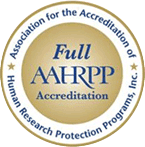
Generally, an IRB may approve a consent procedure which does not include, or which alters, some or all of the elements of informed consent, or waive the requirement to obtain informed consent under 32 CFR §§ 219.116 (c) and (d). These are also the conditions under which an IRB may waive consent for DoD-conducted and DoD-supported research involving human subjects.
Research Involving a Human Being as an Experimental Subject is an activity for research purposes, where there is an intervention or interaction with a human being for the primary purpose of obtaining data regarding the effect of the intervention or interaction. (DoD Instruction, Glossary)
The definition of research involving a human subject as an experimental subject is a subset of but is not the same as the definition of research involving human subjects. When the research meets the Glossary definition of research involving a human being as an experimental subject, informed consent must be obtained in advance from the experimental subject or the subject’s legal representative consistent with 32 C.F.R. part 219 if the subject cannot consent. If consent is to be obtained from the experimental subject’s legal representative, the IRB must have first determined that, consistent with 32 C.F.R. part 219, the research is intended to benefit the individual subject. (DoD Instruction, 9.b. Unique Limitations on Waiver of Informed Consent)
The requirement of paragraph 9.b. of DoD Instruction may be waived by the Assistant Secretary of Defense for Research and Engineering (ASD(R&E)) if all the following conditions are met:
- The research is necessary to advance the development of a medical product for the Military Services.
- The research may directly benefit the individual experimental subject.
- The research is conducted in compliance with all other applicable laws and regulations.


